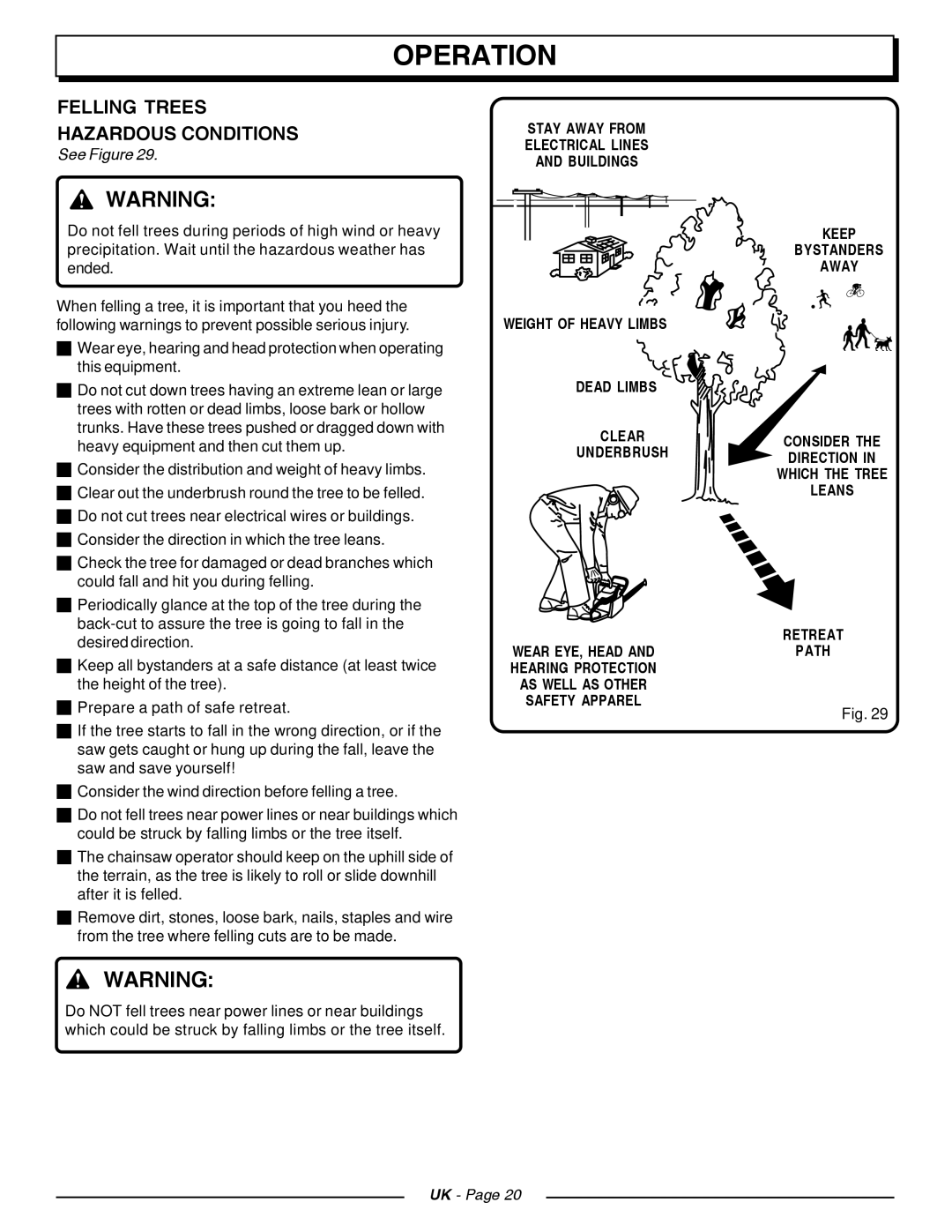
OPERATION
FELLING TREES
HAZARDOUS CONDITIONS
See Figure 29.
WARNING:
Do not fell trees during periods of high wind or heavy precipitation. Wait until the hazardous weather has ended.
When felling a tree, it is important that you heed the following warnings to prevent possible serious injury.
Wear eye, hearing and head protection when operating this equipment.
Do not cut down trees having an extreme lean or large trees with rotten or dead limbs, loose bark or hollow trunks. Have these trees pushed or dragged down with heavy equipment and then cut them up.
Consider the distribution and weight of heavy limbs. Clear out the underbrush round the tree to be felled. Do not cut trees near electrical wires or buildings.
Consider the direction in which the tree leans.
Check the tree for damaged or dead branches which could fall and hit you during felling.
Periodically glance at the top of the tree during the
Keep all bystanders at a safe distance (at least twice the height of the tree).
Prepare a path of safe retreat.
If the tree starts to fall in the wrong direction, or if the saw gets caught or hung up during the fall, leave the saw and save yourself!
Consider the wind direction before felling a tree.
Do not fell trees near power lines or near buildings which could be struck by falling limbs or the tree itself.
The chainsaw operator should keep on the uphill side of the terrain, as the tree is likely to roll or slide downhill after it is felled.
Remove dirt, stones, loose bark, nails, staples and wire from the tree where felling cuts are to be made.
WARNING:
Do NOT fell trees near power lines or near buildings which could be struck by falling limbs or the tree itself.
STAY AWAY FROM
ELECTRICAL LINES
AND BUILDINGS
WEIGHT OF HEAVY LIMBSC
DEAD LIMBS
CLEAR
UNDERBRUSH
WEAR EYE, HEAD AND HEARING PROTECTION AS WELL AS OTHER SAFETY APPAREL
KEEP
BYSTANDERS
AWAY
CONSIDER THE DIRECTION IN WHICH THE TREE LEANS
RETREAT
PATH
Fig. 29
UK - Page 20
